
Research findings underscore the need for organizations to invest in enhancing recruitment and retention strategies for Latinas in senior executive roles.

When recruiting and hiring students with autism, it’s important for employers to train hiring managers so they understand how the hiring process might look different and adjust their criteria on how they evaluate candidates.

The most prominent elements of a successful partnership between an HBCU and an employer are gaining understanding of challenges, demands, and goals and changing behaviors.

As students of color, including Hispanic students, are eager to attend higher education institutions and advance their economic wealth, many barriers hinder their academic success.

Disney provides resources to the College Fund to administer the latter’s scholarship program, called the Future Native Storytellers Program. Recently, a smaller group of program scholars was selected to receive additional enhancements to increase the awareness of opportunities at Disney for Native students.

While some of the experiences of nontraditional-aged students mirror those of their traditional-aged peers, there are important areas where they diverge. This information can help career service professionals and recruiters better serve this growing group of college students.

Forté, winner of the 2024 NACE Business Affiliate Award for Excellence in Leadership, focuses its work on systematically addressing the barriers that prevent women from pursuing MBA degrees and business leadership positions.

The Georgia Tech Career Center, large-college winner of the 2024 NACE Career Services Excellence Award, hired eight new staff members across various functional areas within the office in a process that aligned with the institute’s DEI Blueprint to, in part, closely reflect the demographics of Atlanta.

One important question for career services staff who hope to support racial equity in their work: How does race and racism show up in the student experience?

AI can support first-generation students in the job search by bridging the gap in their professional network.

Attendees of the USC Leventhal School of Accounting’s inaugural “Accounting Without Walls” Festival left with actionable plans to implement DEI strategies in their organizations, a deeper understanding of the current DEI landscape in accounting, and more.
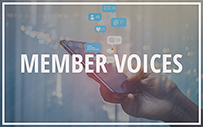
The use of gamification apps at in-person events can be invaluable for individuals who may struggle to focus or interact in traditional settings.

NACE is conducting a quick poll and would like your input to assess ways that campus recruiting may be impacted. Last spring, we saw increased campus protests and lockdowns in response to student activism. As we prepare for the fall semester and campus recruiting, there is a potential for increased campus unrest in response to global and national events (i.e. Presidential election, war in Middle East). This Quick Poll is intended to get an overall understanding of the ways university recruiters and campus career centers are preparing for possible campus unrest related to the recruiting process.

Although allyship with the LGBTQ+ community different for everyone, one thing is clear: It requires action.

Northwestern Mutual shifting the focus of its internship program to development of career readiness competencies seemed like a natural progression since the company was already focusing on themes similar to those identified by NACE’s competencies.

Despite the Supreme Court’s 2023 ruling overturning affirmative action, the decision appears to be having little to no impact on employers’ DEI recruiting priorities.

Winner of NACE’s 2024 Diversity, Equity, and Inclusion Excellence Award for colleges, the Georgia Tech Career Center’s Georgia Tech’s AuthenTECH Partnership initiative leverages staff to provide population-specific resources, expand programming, and cultivate partnerships to advance equitable career outcomes.

Landmark College, an institution exclusively for students who learn differently including those on the autism spectrum, champions a strengths-based model and gives students the skills and strategies they need to achieve their goals.
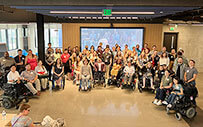
Winner of the 2024 Chevron Innovation Award, the Gregory S. Fehribach Center at Eskenazi Health empowers Indiana college students with physical disabilities to achieve equitable employment following graduation.

Belonging at work—feeling that one is valued, accepted, and supported—helps to ensure a healthy, productive, and positive work environment. NACE surveyed its membership to better understand their experiences with belonging in the profession.

Recent data reveal that systemic barriers continue to limit progress on achieving pay equity for all—yet there are tangible, proven ways that career centers and employers can make an impact.

Consultant Katie Donovan offers tips for employers to eliminate the main causes of pay inequity for women, including that women are underpaid doing the same jobs as men and are underrepresented in leadership roles.

When it comes to the attributes of a job and an organization and the benefits the organization offers, there are some differences in student preferences by race and gender.

Women remain underrepresented in computer science majors and careers. Two researchers conducted a study to see how women in computing experience and make sense of their internships, and how their internship experiences shape their future career plans.

A study found that mentorship, community, biculturalism, and resilience are crucial resources and skills that Black women can use to advance their careers.

As HBCUs are a key source of high-quality, diverse talent for employers, there are benefits for both institutions and organizations in developing successful partnerships.

To foster a truly diverse and inclusive workplace, employers should expand their DEI efforts to encompass what is increasingly being referred to as DEIA—or diversity, equity, inclusion, and accessibility.
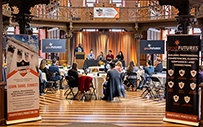
Evangeline “Eva” Kubu, Princeton University, explores how to address long-standing systems and practices to ensure all Ph.D. students have equitable access to comprehensive professional development.
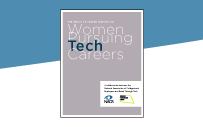
This study, a collaboration between NACE and Break Through Tech, provides evidence that career services can help level the playing field for women pursuing STEM careers.

As October is National Disability Employment Awareness Month, several organization offer resources about disability inclusion for employers and career services offices to use now and throughout the year.

As we enter the new school and recruiting season, NACE is conducting a Fall Quick Poll. The focus of our poll is on two important issues– the impact the end of Affirmative Action is having on our work and state of unpaid internships.

Early data from a forthcoming NACE study indicate that the gender pay gap has widened over the past year, with female graduates now earning just 72 cents to every dollar earned by male graduates, down from around 81 cents.

Some of the rewarding aspects of being a URR professional include changing people’s lives and providing a seat at the table for many who may not have been historically represented.

What are some key considerations and steps for employers to take to create long-lasting, mutually beneficial partnerships with HBCUs and PBIs?

A study at a minority-serving institution uncovers aspects of social and cultural capital that contribute to the college-to-career transition of Black undergraduate women.

Interviews with diversity, talent, and industry experts revealed confusion, conflation, and a general lack of conceptual clarity around fundamental differences in DEI& B in their organizations.

Slightly more than 85% of employers reported having formal diversity recruiting goals, according to NACE’s 2022 Recruiting Benchmarks Report, but how effective are these efforts?

At the University of Cincinnati, students facing financial constraints can access a grant designed to enable them to engage in career-focused courses.

Research conducted by NACE and The Center for the Study of HBCUs underscores how important it is for companies to conduct audits to assess gaps and inequities in their recruiting efforts.

A new $1 million gift supporting career development at William & Mary will triple the number of students annually who can receive university funding for unpaid and underpaid internships.

Chelsea C. Williams, founder and CEO of Reimagine Talent Co., defines “belonging” as a feeling that people have when they are seen, valued, protected, and respected. “While, ultimately, individuals determine and define their sense of belonging, I do believe there are steps we can take to build for belonging,” Williams adds.

When employers consider skills and practice skills-based hiring and skills-based networking, they bring in a more diverse slate of candidates from non-traditional backgrounds, says Asha Aravindakshan.
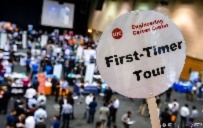
The University of Illinois at Chicago College of Engineering Job & Internship Fair Tours were created to engage more first- and second-year students in job fairs and to reduce barriers to attendance.

Diversity and inclusion have traditionally been about race and about sex, but we are all so much more than just what is visible, explains author, speaker, and social impact adviser Michele Sullivan.

There are key steps that employers and colleges can take to ensure that their culture is inclusive, such as providing training, planning intentionally, and holding employees accountable, says MarTeze Hammonds, Ed.D.

A University at Buffalo program uses project-based internships with local nonprofits to promote collaboration, interdisciplinary exchange, and the value of social innovation among graduate students.

College graduates in their early professional careers report significant mental health issues and view their jobs as a contributing factor. How can employers and colleges provide support?

Three members of NACE’s HBCU Affinity Group share their thoughts about and personal experiences with HBCUs.

Beyond ensuring diversity in the composition of their intern cohort, employers’ ability to convert their interns into full-time hires is a critical component to diversifying their workforce.

Liberty Mutual takes a very targeted approach to the sources of talent they try to attract, engage, and hire. This extends far beyond a traditional target school list.

NACE Brief: Understanding the Experiences and Attitudes of LGBTQ+ Students is free to NACE members. There are important—and troublesome—differences in pay, sense of belonging, and job offers that LGBTQ+ students experience during internships that impact their experience in the job search and employment, according to NACE’s newly released brief titled Understanding the Experiences and Attitudes of LGBTQ+ Students.

NACE provided a range of articles and resources around DEI-related topics throughout FY22.

After witnessing the impact that the pandemic had on early undergraduate students from underrepresented groups in the tech industry, IBM scaled up its early talent ID program.

In fall 2021, NACE conducted a quick poll to survey members about the challenges they experienced in addressing the career needs of diverse students.
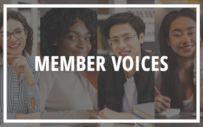
Many emerging professionals are turning to community colleges, vocational schools, and technical bootcamps to gain marketable skills.

Launched in 2018 with a flagship two-day immersive conference, Workday’s “Future Females in Tech Engagement Program” helps women to build career confidence and make the connections they need to get started in the tech industry.

The UC Berkeley Career Center’s annual transfer student career summit is a five-hour virtual event that was created to help connect transfer students, who are often overwhelmed when navigating career opportunities, and employers that are not aware of the value transfer students can bring to organizations.

More than 80% of schools conducted first-destination surveys in 2021-22, according to NACE’s 2021-22 Career Services Benchmarks Survey Report.

There are several research-based practices employers can implement to achieve greater success in recruiting and developing interns from HBCUs and PBIs.
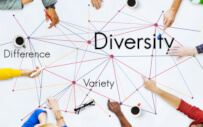
Career centers play a critical role in supporting diversity, equity, and inclusion.
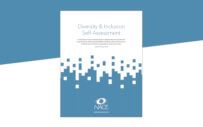
The Diversity and Inclusion Self-Assessment is a tool that can be used to gauge current status and progress toward diversity and inclusion goals.

This case study by the NACE Principles for Ethical Professional Practice Committee addresses the ethical issues involved when faculty refer and rank students for employers and offers recommendations for how career center staff can resolve the issues.

Employers are looking for help to attract and retain Black talent. Career services professionals can help them by sharing 16 strategies that will help them.

The internet is full of advice on how international students can lower the costs of their own education, but individual students aren’t going to solve this problem on their own through a personalized, piecemeal approach. Collective action is necessary. Stakeholders from the educational sector, financial world, and the business community must work together to create a unified system that works.

Many colleges are placing a renewed emphasis on recruiting rural students. Are career centers prepared to help them when they get there?

College students who identify as lesbian, gay, bisexual, transgender, or queer (LGBTQ) experience unique challenges in the area of career preparation.

In comparing both the first destinations and the lifelong professional outcomes for women and men, there are some notable disparities, including in pay. What part can higher ed play in eliminating the gender pay gap?

Texas Tech University undertook a study of recruiters at Big XII universities to identify current diversity recruiting practices.

Use this checklist to gauge your career center’s current status and progress toward diversity, equity, and inclusion-related goals.

Often, people make assumptions about gender based on a person’s name or appearance. These assumptions aren’t always accurate and can send a potentially harmful message that an individual must look a certain way to demonstrate gender.

How do we support students who have been marginalized or who may feel unsafe around law enforcement while also supporting employers in law enforcement?

An inclusive work culture mirrors the community the organization serves and yields many benefits for both the organization and its employees.

The Office of Career and Continuing Education at Florida Southern College developed and implemented the “Diversity in the Workplace” series to address student needs.

Expert and author Tony Byers cites research confirming that there are substantial benefits associated with having a diverse and inclusive workplace.

Initiative provides support and creates a culture of understanding for what it means to be a member of the LGBTQ+ community at a Catholic university.

Collaboration among campus offices is a critical aspect in supporting students with disabilities during their search for employment.

NACE research suggests that internship and study-abroad experiences have a positive effect on the career readiness of first-generation students

A NACE task force developed a glossary of terms relevant to supporting individuals with disabilities.

Key aspects of building an effective neurodiverse hiring program are having a sustained supply of candidates and getting buy in from within.

Highlights from the NACE19 mega-session offer insight into how to make excellence inclusive.
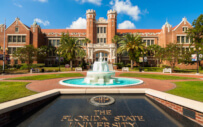
In summer 2019, Florida State University implemented an experiential education graduation requirement for all undergraduate students.

This list, compiled by a NACE task force, offers information about and links to a variety of resources.

NACE research shows that disproportionalities exist in terms of race/ethnicity and representation by internship attainment and pay type.

Students with hearing loss may face challenges associated with communication that may be exacerbated during this pandemic, with requirements for wearing masks and physically distancing.

NACE research shows that women are overrepresented among unpaid interns and underrepresented among paid interns.

First-generation college students are overrepresented among “never interns” and underrepresented among paid interns.

For many organizations and institutions that made commitments to take action in response to racial injustice, the work has yet to begin.

In August 2020, NACE launched quick polls to gauge how institutions, organizations, and individual career services and recruiting offices are responding to the need to address racial injustice.

This page provides easy access to a range of events, resources, and other material related to NACE’s commitment to fighting racial injustice and furthering diversity, equity, and inclusion.

Recently, members of the NACE Community shared resources that they find helpful when working with LGBT college students, job candidates, and employees.


NACE’s quick poll assessing our field’s reaction to combat racial injustice show that employers and colleges have been slow to take action.

The final results of NACE’s recent quick poll show how our field is responding to the need to address racial injustice.

Abbott Laboratories’ high school internship program exposes students from diverse backgrounds across the United States to STEM fields.

Empower Retirement is moving away from assessing candidates for “culture fit” by aligning values and providing hiring managers with interview questions and language.
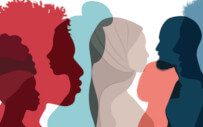
More than 87% of responding organizations report that they have a diversity recruiting strategy for the Class of 2021, the second highest level reported in the past seven years.

There are questions that career services professionals can suggest their students ask recruiters to assess an organizations’ DEI priority and commitment.

Students may ask specific questions to assess your organization’s commitment to diversity, equity, and inclusion. Be prepared to answer them.

Most organizations should look to address is their cultural landscape and homogenous culture. Senior leaders and recruiters can consider these 10 concrete ideas and practices that could positively impact creating an inclusive workplace and environment.

NACE research shows that paid internships benefit students in their initial post-graduation job search: more job offers, higher starting salaries, and a shorter search. However, the data also show that this path to employment may be exclusive, with racial/ethnic minorities, women, and first-generation students all underrepresented in paid internships.

Developed by the NACE Tribal Colleges & Universities Affinity Group, this resources includes insights to consider in engaging Native American students and provides links to a variety of Native American organizations.

The racial injustices that marked 2020 strengthened Roderick Lewis’ resolve to create a DEI scorecard for career centers to facilitate change in the employers engaging with their campuses.

Visibility and the tiering of school partnerships are two of the challenges Historically Black Colleges and Universities face in attracting employers to recruit their students.

While DREAMers tend to have qualities employers seek, there are several obstacles they face that career services professionals can help them navigate during the job search.

Many businesses and organizations are unclear about their ability to hire DREAMers who have DACA or TPS. In fact, employers are able to hire a DREAMer just as they would a U.S. citizen.

College students with disabilities struggle to launch their careers. Strategic partnerships can help reduce barriers and increase opportunities.

According to results of NACE’s 2021 Internship & Co-op Survey, an average of 62% of interns were white and nearly 58% were male.

Career services can play a vital role in helping student veterans realize their goal of meaningful employment after graduation.

Employers that hire student veterans have the benefit of hiring employees who have already received “the world’s best leadership training.”

CSU Fullerton’s “I Am First” program addresses the specific needs of first-generation college students and prepares them for the challenges they face.

When one HBCU career practitioner is building relationships with employers, she is looking for authenticity, a shared sense of purpose, and impactful engagement opportunities for students and the university as a whole.
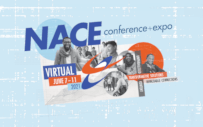
Over the course of the week-long NACE21 conference, it became clear that several topics—such as the new normal, professionalism, and career readiness—weighed most heavily on attendees.

NYU’s Wasser-Buddies mentoring program helps shape institutional culture, equalize the experience of new hires, increase knowledge transfer, and enhance leadership development.

Cultural intelligence may be the most important individual area of change for organizations that want to bolster their recruitment and retention of culturally diverse individuals.

It is important for employers to consider the language they use because language can be loaded and have different meanings for different people.

Sandra Buatti-Ramos offers a look at some of the bigger issues trans college students face in their job search and in the workplace; the goal is to provide career services professionals with insights that can help them think about how they can support their trans students in their career decision-making, job search, and career management.

It is critical that administrators and staff at colleges and universities foster an environment of inclusion and belonging for international students; for career development professionals in particular, this means making it clear to international students that their career development matters. One of the best ways to do this is by building a strong partnership between the career center and international student services.

Students with disabilities face a number of barriers to successful employment, but tend to underuse career services. The authors address options and opportunities for career services to address underuse and help their students overcome obstacles and challenges.

Career services offices can help students develop their professionalism and navigate situations when “professional standards” may fuel and foster bias.

The biggest challenge with “professionalism” is ensuring that all candidates and employees understand what it means within the context of the organization and their specific job function.
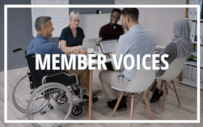
Many employers have embraced the idea of authenticity at work, but career services must work with students to anticipate and navigate challenges should these employer efforts still fall short.
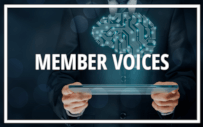
As employers begin to rely more heavily on the use of technology when screening job candidates, inherent biases within this technology have begun to be revealed in the documentary “Coded Bias.”

Ned Khatrichettri and Cameron Vakilian explore the nuances of professionalism in a post-pandemic, increasingly digital world.
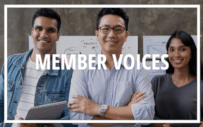
As employers continue to emphasize diversity, equity, and inclusion at the workplace, acts such as correctly pronouncing names becomes an increasingly important first step.
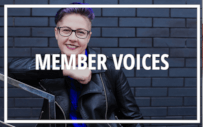
Despite many employers advocating for employees to bring their authentic selves to work, employees that do so may still face hostility from coworkers due to this decision.
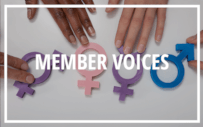
Employers and career services professionals should take a proactive approach to ensure their spaces are tangibly inclusive to a multitude of gender identities.
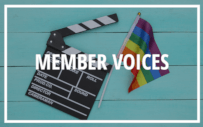
Through diversity in entertainment, students from marginalized groups can discover many career options that they may not have otherwise considered.
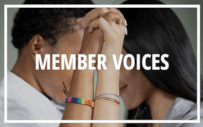
The journey to living authentically both personally and professionally is not always a smooth one and can have a lasting impact on the mental health of those who make the decision to do so.
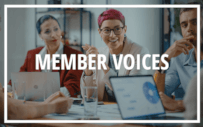
Many employers encourage employees to bring their “authentic” selves to work, but it should ultimately be up to the employee to determine how much of themselves to share.
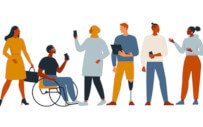
In a follow up to its August 2020 quick poll, the National Association of Colleges and Employers (NACE) is polling employers and career services professionals on their efforts to address racial injustice in their practices and operations. Results are available in real time.

The College Autism Network helped create a curriculum to help career services professionals better converse about autism and support autistic students.
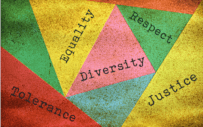
Part of the mission of UNH CaPS is to help employers establish or enhance employers’ work around diversity and inclusion by providing them with resources, consultation, and recognition.

Technology has a place in that future, but whether the tools we use truly promote good or reinforce a damaging status quo depends on the choices we make now.

To address and better understand racial injustice and the needs of historically marginalized groups, career centers are providing more professional development for their staff.

At this early juncture in NACE’s current quick poll, it seems that there is still progress for employers to make in addressing racial injustice and the needs of historically marginalized groups.

This case study illustrates issues that career centers and employers face in providing students with equitable access to services and opportunities.
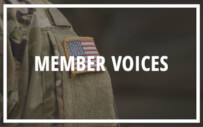
When working with military-connected students, it is important to keep in mind that while they face many of the same challenges as other students, their path to success can differ.

With student populations becoming more diverse, career centers need to change and adapt to their needs and be inclusive as they develop resources, opportunities, and programming.

Recruiting, onboarding, and retaining employees are not one-size-fits-all processes and there are challenges throughout. This is especially true for neurodiverse students.

URR functions and career services operations have received increased funding and resources to address racial injustice and the needs of historically marginalized groups, just at different paces.

In response to the climate of racial injustice, Dell expanded its definition of recent graduate talent to engage underrepresented minorities.

To get the best results when recruiting and hiring neurodiverse candidates, employers need to be flexible, supportive, and willing to make accommodations.

Virtual recruiting provides a better job-search experience for historically marginalized populations than in-person recruiting, according to results of the NACE 2021 Student Survey.

When creating programs, resources, and services for marginalized students, Stanford starts with identifying issues and needs through focus groups, research, and outcomes.

Results from NACE’s First Destinations Survey for the Class of 2020 reveal that the gap in pay between men and women begins right out of college—at the start of the career.

Recent research suggests that career development programs that focus on key levers of economic mobility may play a critical role in reducing or eliminating racial wealth gaps for their participants.

To implement and foster an inclusive climate in higher ed, institutions need to create a culture of belonging, attract diverse talent at the entry level, and build intentional pathways to retain diverse talent.

Is experiential learning designed for Black students? Erica Lake’s study found that that Black students at PWIs perceive different college experiences from their peers and are not as engaged in experiential learning, even though they may be interested

A survey of 300 first-generation college students identified three skill sets that these students need for career success: relationship management; virtual work; and leadership skills.

The Carolina Cluster forged a new model for career readiness and designed and implemented programs to improve employment outcomes for graduates.

Employee resource groups can be valuable tools for helping employers to bolster their diversity, equity, and inclusion efforts, and to help with effective onboarding and retention.

Given the ever-changing nature of employment laws, it is important to understand what is permissible in diversity hiring and recruiting.

GPA—once widely used to identify potential candidates for jobs—is now used by fewer than half of employers, according to the results of the Job Outlook 2022 survey conducted by the National Association of Colleges and Employers.
To best serve a total student body, it is incumbent upon career centers to evaluate exactly who is using their services and how they are promoting their services.
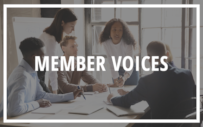
Work-based learning opportunities can be great ways for students with disabilities to gain valuable professional experience while preparing for their postgraduation careers.

In this look forward, Shawn VanDerziel, executive director of the National Association of Colleges and Employers, addresses disruptions to our professional lives and the opportunities these present for redefining how college career services and employment professionals operate.

College and university career services practitioners should continuously search for, review, and consider implementing practices that have proven successful in the service of trans students. This article serves as an introduction to successful practices.

To prepare students for their transition to the workforce, career centers have to account for the standards of professionalism shifting over the past several years.

The following case study discusses ethical considerations when a career center seeks to attract students from diverse social identities to engage with their career center, access website content, and engage with other service delivery platforms.

This case study discusses ethical considerations when an employer seeks to connect with specific student populations through the career center in order to enhance diversity recruitment efforts.

Cigna recently held a virtual event to increase awareness of HBCUs and spotlight the prominence and legacy of HBCUs in the Black community.

The increase in formal diversity recruiting efforts reported continues the growth—and recovery—in this area over the last decade.

There are many factors that contribute to the gender pay gap and severe consequences of long-term inequity in pay.
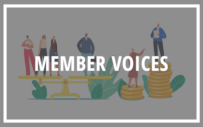
Increasing salary transparency in general and including information on potential payroll deductions can go a long way towards a more equitable work environment.

One of the barriers that prevents more employers from partnering with community colleges is a general lack of understanding about what these schools and their students can provide.